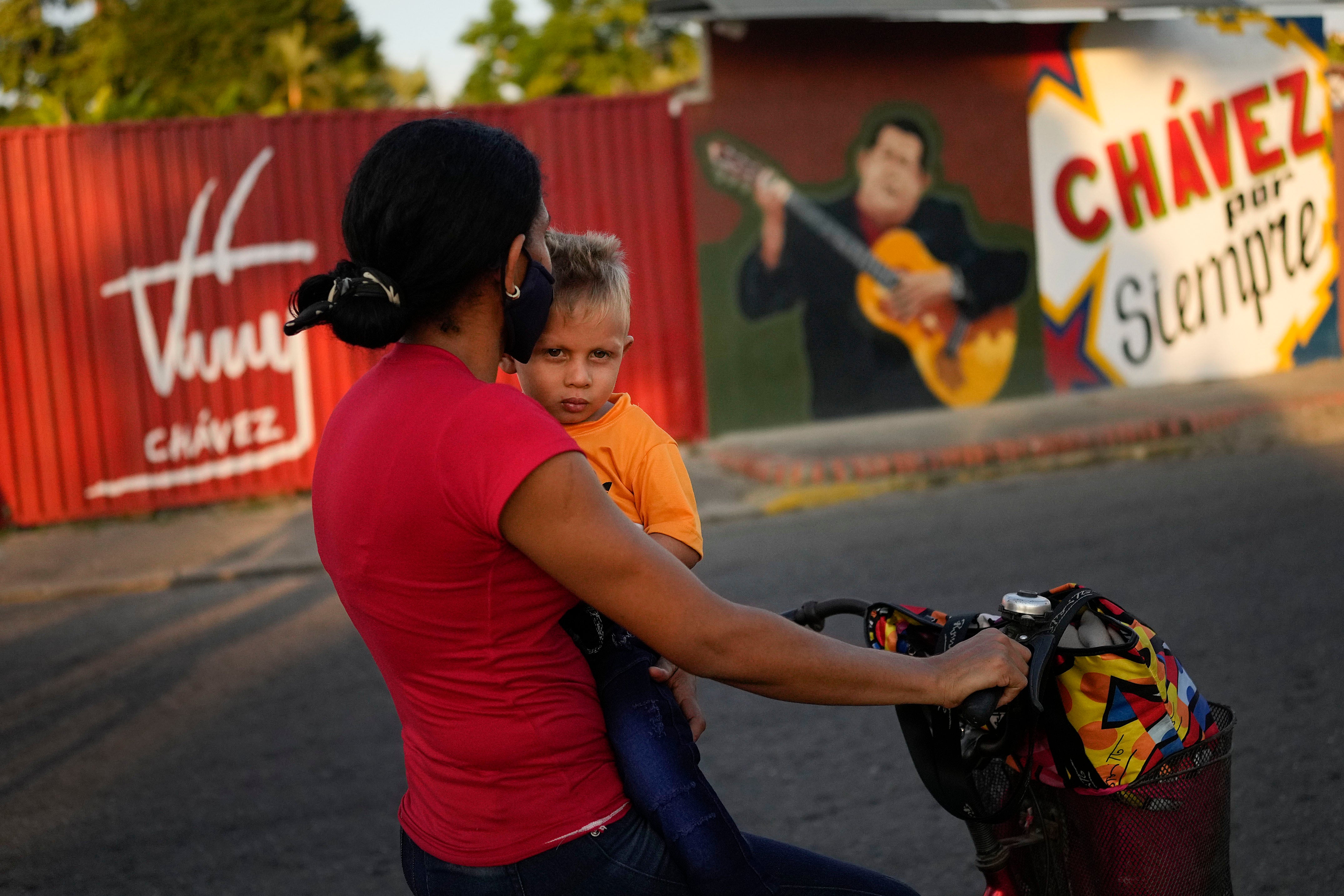Venezuela's cradle of Chavismo picking new gov in vote re-do
Voters in the home state of the late Venezuelan President Hugo Chávez are casting ballots again Sunday in a special gubernatorial election called after the opposition contender in November’s regular contest was retroactively disqualified as he was ahead in the vote count

Voters in the home state of Venezuela's late President Hugo Chávez are casting ballots again Sunday in a special gubernatorial election called after the opposition contender in November’s regular contest was retroactively disqualified as he was ahead in the vote count.
The contenders in the northwestern state of Barinas include a local opposition leader, an opposition dissident and a former foreign minister. For the first time in more than two decades, no member of Chávez’s family is on the ballot.
The disqualification of Freddy Superlano by the country’s highest court and the scheduling of the special contest raised further doubts about the fairness of Venezuela’s electoral system following the first vote in years in which most major political parties took part.
Superlano was disqualified Nov. 29 while he was ahead by less than a percentage point over incumbent Argenis Chávez, one of Hugo Chávez’s brothers. The high court, which is one of many government bodies seen as loyal to the government of President Nicolas Maduro ignored a presidential pardon that had made Superlano and other members of the opposition eligible to run.
Barinas has long been a bastion of Chavismo, with his brother Argenis Chávez, brother Adán Chávez and father Hugo de los Reyes Chávez all serving stints as governor since 1998.
But the pull of the late president, who founded Venezuela's ruling socialist movement, proved weak on Nov. 21. Residents said afterward that many people in Barinas are angry over long facing serious gasoline shortages, a lack basic services like gas, water and electricity, deficient health care services and hunger from food scarcity.
Argenis Chávez resigned as governor following Superlano’s disqualification and did not enter the race in the special election. The ruling party then chose former foreign minister Jorge Arreaza as its candidate.
In addition to Superlano’s disqualification, his wife, who was chosen as his successor, was disqualified. So was her substitute.
Sunday’s ballot also includes Sergio Garrido, candidate for the U.S.-backed opposition, and Claudio Fermin, an opposition dissident.
Vote counts for the ruling party have been declining since 2017 across the country. About 6.5 million people voted for pro-government candidates during that year’s regional elections. On Nov. 21, that number dropped to about 3.7 million.
The Nov. 21 election was monitored by over 130 observers from the European Union the U.N. and the U.S.-based Carter Center
A preliminary report from European Union observers concluded Venezuela’s regional contests were held under better conditions than other ballots in recent years but were still marred by “structural deficiencies”, including the disqualification of opposition contenders.
The EU team has not commented on the situation in Barinas, but a report from the Carter Center criticized the court’s intervention.
“There was also a general atmosphere of political repression, and more than 250 people are being held as political prisoners,” the center said. “The tribunal’s recent decision to suspend the tabulation of votes for the governorship of Barinas is another example of its interference in the electoral process.”
Bookmark popover
Removed from bookmarks